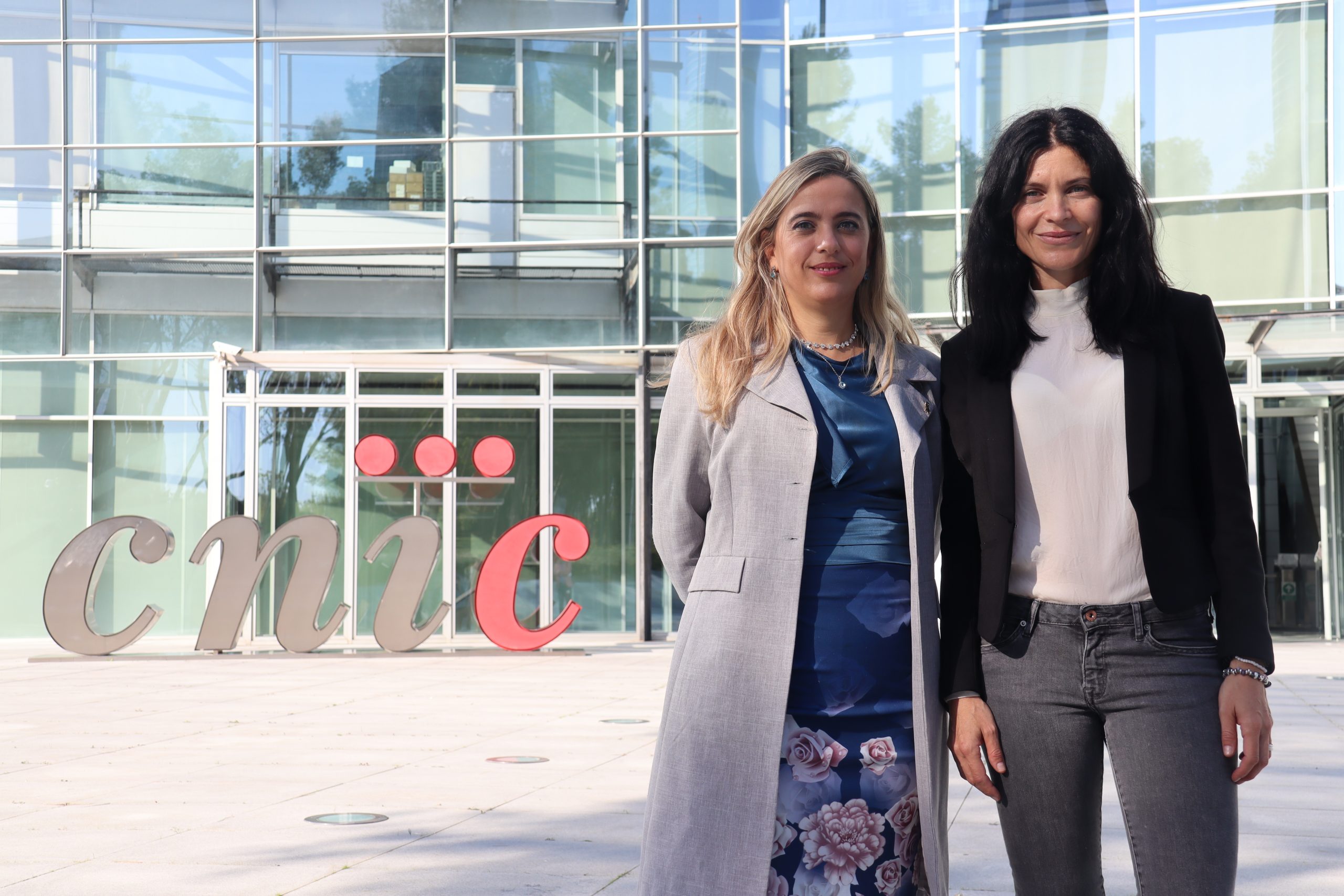Una investigación realizada en el Centro Nacional de Investigaciones Cardiovasculares (CNIC) ha identificado un papel clave para la vía MKK6-p38y/d en el desarrollo de hipertrofia cardiaca.

at the CNIO
Una investigación realizada en el Centro Nacional de Investigaciones Cardiovasculares (CNIC) ha identificado un papel clave para la vía MKK6-p38y/d en el desarrollo de hipertrofia cardiaca.

Ayelén M. Santamans, Valle Montalvo-Romeral, Alfonso Mora, Juan Antonio Lopez, Francisco González-Romero, Daniel Jimenez-Blasco, Elena Rodríguez, Aránzazu Pintor-Chocano, Cristina Casanueva-Benítez, Rebeca Acín-Pérez, Luis Leiva-Vega, Jordi Duran, Joan J. Guinovart, Jesús Jiménez-Borreguero, José Antonio Enríquez, María Villlalba-Orero, Juan P. Bolaños, Patricia Aspichueta, Jesús Vázquez, Bárbara González-Terán, Guadalupe Sabio.
During the first weeks of postnatal heart development, cardiomyocytes undergo a major adaptive metabolic shift from glycolytic energy production to fatty acid oxidation. This metabolic change is contemporaneous to the up-regulation and activation of the p38γ and p38δ stress-activated protein kinases in the heart.
We demonstrate that p38γ/δ contribute to the early postnatal cardiac metabolic switch through inhibitory phosphorylation of glycogen synthase 1 (GYS1) and glycogen metabolism inactivation. Premature induction of p38γ/δ activation in cardiomyocytes of newborn mice results in an early GYS1 phosphorylation and inhibition of cardiac glycogen production, triggering an early metabolic shift that induces a deficit in cardiomyocyte fuel supply, leading to whole-body metabolic deregulation and maladaptive cardiac pathogenesis. Notably, the adverse effects of forced premature cardiac p38γ/δ activation in neonate mice are prevented by maternal diet supplementation of fatty acids during pregnancy and lactation.
These results suggest that diet interventions have a potential for treating human cardiac genetic diseases that affect heart metabolism.
“Lo que nosotros descubrimos es que p38gamma se activa cuando la célula tiene un estrés. Ese estrés, en algunos casos, es un desencadenante de cáncer hepático ya que va a producir un aumento de la proliferación celular, es decir, que las células se empiecen a multiplicar. Es esa p38gamma que se activa la que controla la proliferación celular, ese aumento del número de células que al final va a desencadenar un tumor”.

© 2024 Sabio lab
Theme by Anders Norén — Up ↑